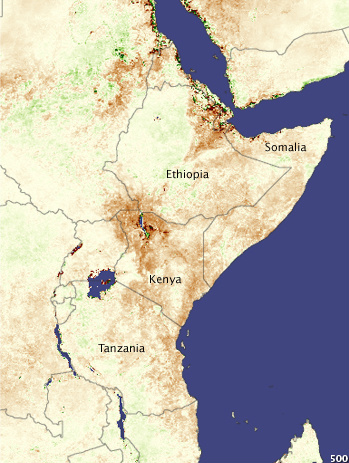A group of nations especially vulnerable to the effects of climate change have released a declaration calling for developed countries to keep CO2 emission below 350 parts per million (ppm) and to give 1.5 percent of their gross domestic product to aid developing nations in adapting to the myriad impacts of climate change.
“Anthropogenic climate change poses an existential threat to our nations, our cultures and to our way of life, and thereby undermines the internationally-protected human rights of our people,” the declaration states, which is supported by nations attending the summit, including the Maldives, Bangladesh, Nepal, Vietnam, Kiribati, Barbados, Bhutan, Ghana, Rwanda, Kenya and Tanzania. These countries have already been severely impacted by rising seas, extensive droughts, and melting glaciers.
“Developed countries bear the overwhelming historic responsibility for causing anthropogenic climate change and must therefore take the lead in responding to the challenge,” the declaration reads, outlining that this role should involve mitigation, adaptation, technology, and financing the solutions.
 NASA image showing the extent of the drought in East Africa this year which left millions hungry. The image compares the growth of vegetation between July 21st and October 10, 2009 to the average growth over the same period from 2002-2008. Green areas show better-than-average growth, tan areas reflect average conditions, and brown areas show poorer-than-average growth. Image courtesy of NASA. |
In the declaration they state that developed nations should “provide public money amounting to at least 1.5% of their gross domestic product, in addition to innovative sources of finance, annually by 2015 to assist developing countries make their transition to a climate resilient low-carbon economy.”
The issue of funds from wealthy states, like Western European countries and the United States, to developing nations to fight climate change has proven a major sticking point in negotiations.
The summit also call on developed nations to “commit to legally-binding and ambitious emission reduction targets consistent with limiting global average surface warming to well below 1.5 degrees Celsius above pre-industrial levels and long-term stabilisation of atmospheric greenhouse gas concentrations at well below 350ppm.” The declaration further states that global greenhouse emission should peak by 2015 and be reduced by 85 percent by 2050.
The current level of carbon concentrations is 387 ppm. To reduce that to 350 ppm, the world would likely need to develop new technologies or strategies to remove carbon from the atmosphere.
The nations at the summit also pledged to walk-the-walk by proving to wealthy nations that carbon-neutrality is possible. They declared their “determination, as low-emitting countries that are acutely vulnerable to climate change, to show moral leadership on climate change through actions as well as words”. They called upon “other countries to follow the moral leadership shown by the Republic of Maldives by voluntarily committing to achieving carbon-neutrality”.
Maldives, the world’s lowest lying country and therefore extremely threatened by rising seas, announced at the end of August that it would be carbon neutral within a decade, far surpassing any other nation’s commitment in fighting climate change.
At the announcement, Mohamed Nasheed, President of the Maldives, said, “If the Maldives a small relatively poor country can achieve a big reduction in its greenhouse gas emissions, there can be no excuse from richer nations who claim that going green is too complex, too expensive, or too much bother.”
The summit called for all heads of state to attend the Climate Change summit in Copenhagen in December.
Related articles
500 global business leaders call for 50-85% cut in emissions by 2050
(09/22/2009) In a statement issued today, more than 500 business leaders have called for “an ambitious, robust and equitable global deal” on climate change.
Political heat rising on climate change, but does the United States feel it?
(09/02/2009) The UN Summit on Climate Change isn’t for three months, yet the political temperature has been rising steadily over the summer. The heat is especially focused on the three big players at the summit: China, India, and the United States.
Maldives president tells world: ‘please, don’t be stupid’ on climate change
(09/01/2009) “Please, don’t be stupid,” Mohamed Nasheed told the world regarding the need to act decisively against climate change. To underlie his message, Nasheed announced that his country will become carbon neutral in ten years.